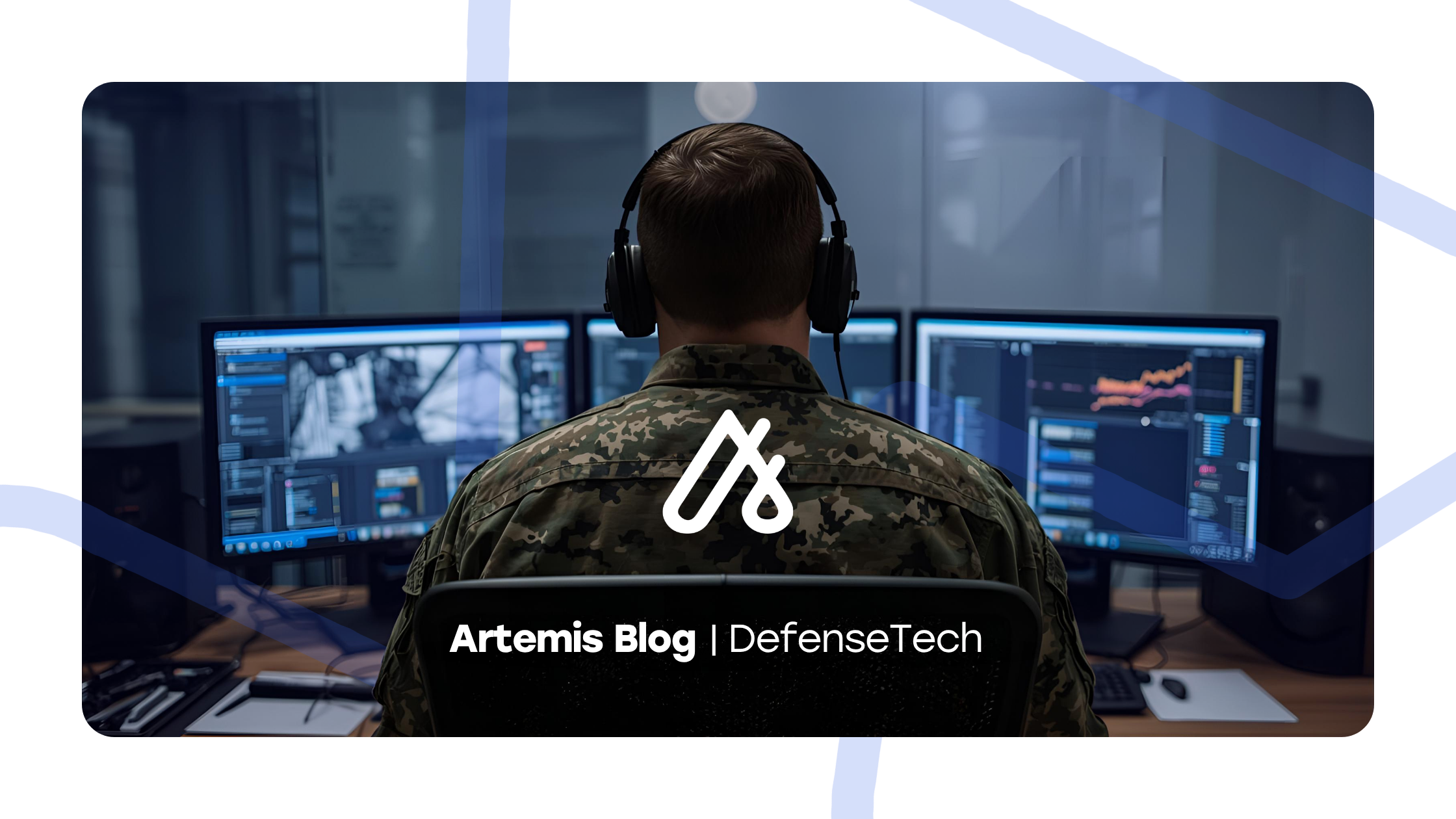Mission-Critical Talent: How Headhunters Secure Top Secret-Level Candidates in the Defense Sector
In DefenseTech, some hiring decisions are routine. This isn’t one of them.
When you need to fill a Top Secret or TS/SCI-level position, you’re not just making a hire—you’re securing the future of your program, protecting national security interests, and preserving millions of dollars in government contracts. The stakes are too high for guesswork or spray-and-pray recruiting.
The reality?
Mission-critical candidates aren’t out there applying to job postings.
They’re fully engaged—working behind firewalls, contributing to classified programs, and managing high-impact defense projects. Their resumes aren’t floating on LinkedIn. Their inboxes aren’t filled with job alerts. They’re busy building the future of defense tech.
So how do you find them?
That’s where headhunting comes in.
At Artemis, we’ve made a career out of solving this problem for defense contractors, primes, and dual-use tech firms. We don’t recruit in the traditional sense. We hunt. And in the defense sector, that means knowing exactly how to navigate the unique world of security clearance hiring and defense executive search.
Here’s how the best headhunters deliver top-tier cleared candidates—and why it matters more now than ever.
Why Security Clearance Hiring Is Different
Most industries compete for talent.
In DefenseTech, you compete for talent and clearance.
Whether it’s a Secret, Top Secret, TS/SCI, or TS/SCI with Full Scope Poly, these are not just security credentials—they’re market gatekeepers. You can’t even start the work without them.
But here’s the catch:
- Clearance doesn’t guarantee competency.
- Competency doesn’t guarantee leadership.
- And both are rarely found in one person actively looking for a new job.
That’s why cleared candidate recruitment is a different sport. It requires precision outreach, trusted networks, and the ability to discreetly connect with high-value individuals who are happy where they are—until the right opportunity comes along.
Why DefenseTech Headhunters Are Essential
1. We Know Where the Talent Is (And How to Access It)
In DefenseTech, the best candidates aren’t visible to the public. Many of them can’t list their projects or achievements online due to classification restrictions. They’re working on black programs, R&D for next-gen defense systems, or cyber operations that never make the news.
As headhunters, we operate behind the scenes.
At Artemis, we’ve spent years building relationships with:
- Cleared software engineers
- Defense program managers
- Cybersecurity leaders with TS/SCI + Poly
- RF engineers working on cutting-edge EW systems
- C-level executives with active clearance and real-world delivery experience
We don’t rely on job ads. We leverage trust and reputation to open doors that traditional recruiters can’t.
2. We Deliver Quality Over Quantity
Hiring in defense isn’t about volume—it’s about precision. You don’t need 100 applicants for a role; you need the one person who can do the job, has the clearance, and fits your mission-critical environment.
Our headhunting process is built for this. We focus on:
- Direct hire defense jobs, not contract fillers
- Targeted outreach, not resume blasts
- Relationship-based recruitment, not transactional placements
When Artemis presents a candidate, they’re not just qualified on paper—they’ve been vetted for cultural fit, program alignment, and long-term retention.
3. We Understand the Zero-Fail Environment
DefenseTech hiring is different because failure isn’t an option.
- If you hire the wrong cybersecurity lead, you risk a breach.
- If you delay filling a cleared program manager role, you risk non-compliance with contract terms.
- If your executive team lacks the right defense pedigree, you may lose out on future awards.
Our role as headhunters is to help you avoid these risks.
We don’t just find talent—we mitigate the consequences of hiring mistakes.
How the Headhunting Process Works in DefenseTech
At Artemis, our Defense Executive Search and Cleared Talent Program follows a specialized approach:
Step 1: Mission Mapping
We start by understanding your unique needs:
- Clearance level required (Secret, TS, TS/SCI, Poly)
- Technical and leadership competencies
- Cultural alignment with your organization
- Timeline and budget constraints
Step 2: Targeted Research
We map the hidden talent pools where your ideal candidates currently work. These might include:
- Defense primes and subcontractors
- National labs and research centers
- Government agencies and three-letter organizations
- Dual-use technology startups with government contracts
Step 3: Discreet Engagement
We conduct confidential outreach to initiate conversations with the right people. This is relationship-driven, not transactional. We act as ambassadors for your brand—positioning your opportunity as a next mission, not just another job.
Step 4: Vetting and Validation
Clearance is just the baseline. We also screen for:
- Leadership capability
- Technical depth
- Past performance in defense environments
- Long-term career goals and retention risk
Step 5: Delivery and Support
Once we present a candidate, we support the process through interviews, offer negotiation, and onboarding—helping you secure top talent without disrupting sensitive projects.
Defense Executive Search Isn’t Optional—It’s Strategic
In DefenseTech, the wrong hire can cost you a contract. The right one can secure your competitive edge for the next decade.
If you’re looking to build high-impact teams with Top Secret-level candidates, direct applications won’t cut it. You need a headhunter who lives in the defense ecosystem, understands the culture, and knows how to engage people already embedded in critical missions.
At Artemis, we take that responsibility seriously. We’re not resume pushers—we’re strategic partners in national security talent acquisition.
Ready to Secure Mission-Critical Talent?
If your DefenseTech organization needs cleared leaders, engineers, or executives for direct hire defense jobs, let’s talk.
We’ll help you find the people who aren’t looking—because they’re too busy delivering results.
But with the right partner, they’ll deliver them for you next.




%20(1).png)
.png)




